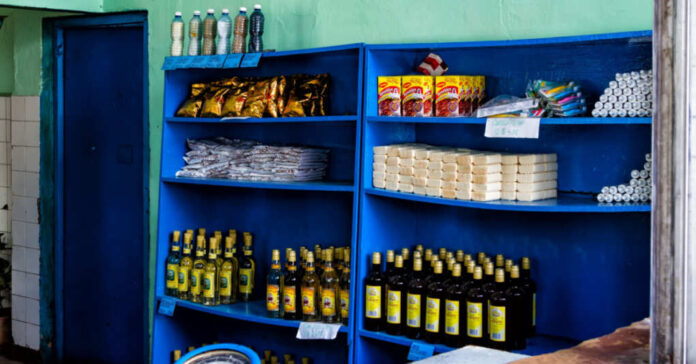Chicago Mayor Brandon Johnson recently dropped a bombshell when he revealed his plan to team up with the nonprofit advocacy group “Economic Security Project” to bring government-owned grocery stores to neglected corners of the city. Republicans didn’t hold back, likening the idea to “Soviet-style central planning.”
Soviet-style grocery aisle adventures are the mayor’s way of addressing the food deserts created when four Walmart stores and a Whole Foods store ran for the hills to escape the rising crime in Chicago. Somehow, four Chicago Walmarts are still afloat, and the company now believes the socialist solution will help them keep their doors open. In April, Walmart issued a press release stating that “collectively, our Chicago stores have not been profitable since we opened the first one nearly 17 years ago.”
While neither Whole Foods nor Walmart has publicly disclosed the reasons for closing stores, it’s widely believed that Chicago’s out-of-control green light for shoplifting has, rather predictably, created losses and limited revenue for the retail giants.
Experts point out that numerous liberal policies have caused retailers to shut their doors nationwide. The passing of bills like California’s Prop 47 downgraded theft from a potential felony to a misdemeanor, while calls to defund the police and other openly hostile law-enforcement policies contributed to a significant decline in the number of officers nationwide.
With no nationwide policies to guide retailers through this shoplifter’s paradise, employers simply advocate workers to let criminals run rampant to ensure employee safety. This overall environment has created what some might call a “shoplifter’s playground” in cities rich with retail, such as New York, San Francisco, and Chicago.
The Chicago Police Department has reported a concerning uptick in thefts, with a 25% increase year-over-year. Robberies in the windy city have also surged by 11%.
Government-owned grocery stores, according to Johnson, hold the magic key to solving the city’s crisis. But Steve Boulton, chairman of Chicago’s Republican Party, disagrees. He feels that the answers lie in “promoting capitalist prosperity” along with stopping crime.
Boulton observes that Chicago’s retail chains are doomed to fail in the face of amateur bureaucracy, political corruption, and limited product selections, on top of encouraging criminals to shoplift. He notes, “Private chains should just pull out of all the neighborhoods because the city stores will have better police protection and lower prices subsidized by the long-suffering Chicago taxpayer.”
But what would a socialist grocery store experience mean for consumers in Chicago?
Critics argue that a socialist grocery store would offer limited choices and variety in products. The store might prioritize basic necessities while neglecting consumer preferences and limiting product options. In addition, incentives for quality and innovation will result in lower-quality products and a shortage of popular items.
These stores will struggle with equitable distribution. Some consumers might receive more than they need, while others might face shortages, leading to frustration and potentially creating black markets.
As anyone who has spent time in a government-funded entity, such as the DMV, can attest, governmental control provides less motivation for employees to provide customer service. Without competition and profit incentives, Johnson’s proposed grocery stores will not prioritize innovation or improvements in service, leading to outdated store layouts, inefficient operations, and a lack of technological advancements.
Johnson’s grocery stores will be bogged down by bureaucratic inefficiencies. Long lines, extensive paperwork, and government oversight will make even a simple trip to the store a cumbersome ordeal. In the end, socialist grocery stores will end up costing Chicago’s taxpayers more than they expect. Subsidizing the store’s operations, managing inventory, and covering losses will lead to increases in government spending and higher taxes.
And, like a mafia movie come true, large enterprises will monopolize product distribution, creating multiple opportunities for corruption at every level.
Fully aware of the challenges ahead, Johnson’s administration will be conducting a feasibility study before providing a timeline for opening these stores.
As these proposed socialist grocery stores enter the scene alongside all the other challenges it faces, Chicago seems to be inadvertently auditioning for a drama series on Netflix. Unfortunately, the residents of the Windy City may find themselves facing unexpected expenses and an unwelcome plot twist featuring product scarcity and government-controlled prices.



















